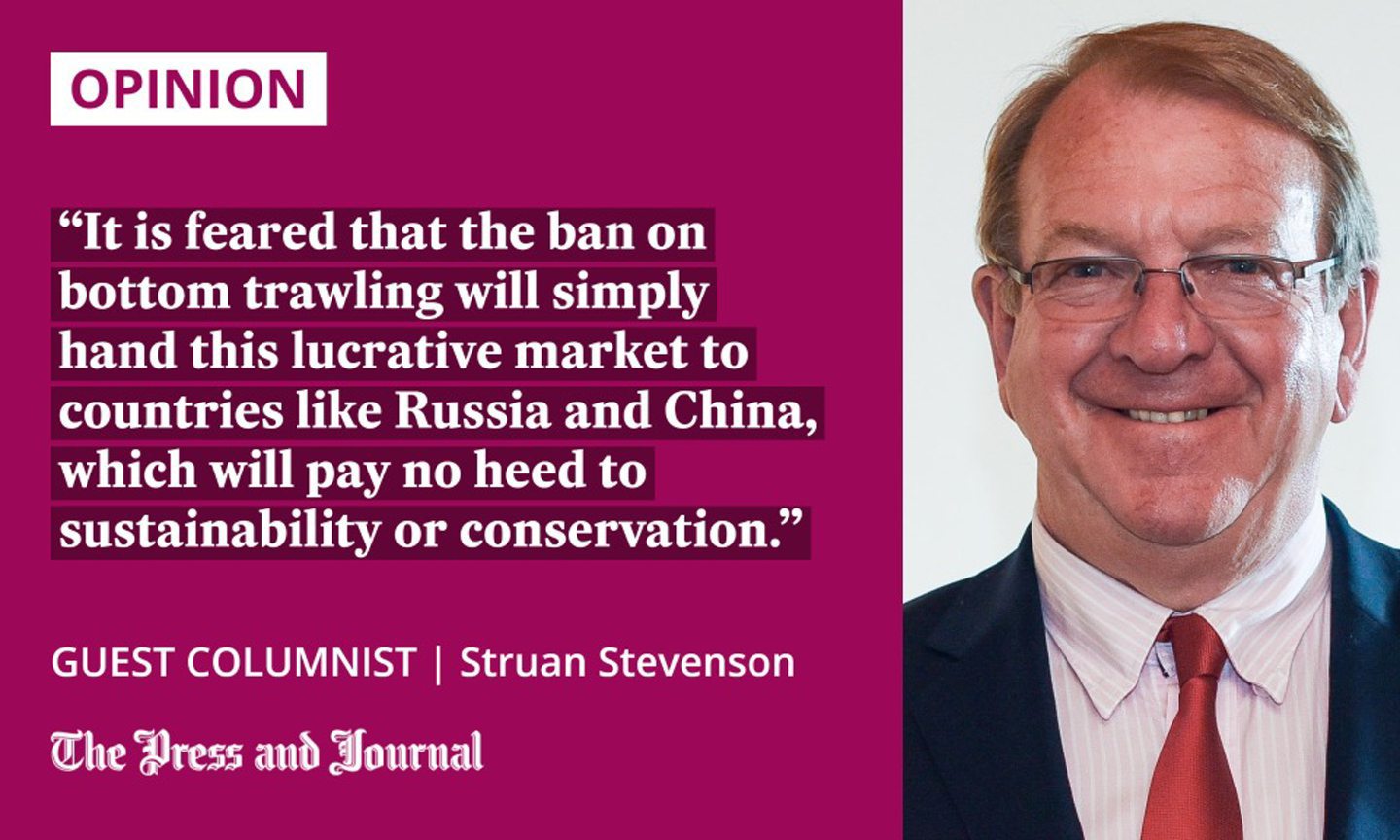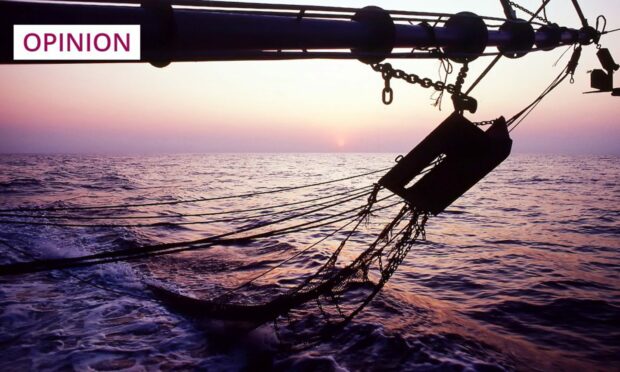The Scottish Greens have called for a complete ban on bottom trawling and dredging, but it would put many jobs at risk, writes Struan Stevenson.
There are fears in Scotland that a move by the European Commission to ban active bottom fishing gears, like those used by scallop dredgers and prawn trawlers, might be copied by the Scottish Government.
A leaked document exposed by the European Bottom Fisheries Alliance (EBFA), has caused ripples of disquiet in Scotland.
The EU Commissioner for the Environment, Oceans and Fisheries, Virginijus Sinkevičius, has pledged to ban bottom trawling in 30% of the EU’s seas. The EBFA says the ban would have a devastating impact on fishing communities, destroying jobs, livelihoods, and businesses, and forcing the EU to import products such as whitefish, shrimps and shellfish from Norway, Russia, and China.

The EBFA accuses the European Commission of “selective quotation of science and facts and skewed interpretations” being used as justification for the proposed ban.
They accuse Commissioner Sinkevičius of following “campaigns fabricated by the environmental NGOs”, who claim that bottom-towed fishing gear not only destroys vital underwater habitats, but also rips up the seafloor and releases carbon, potentially driving climate change.
The Commission’s action plan is part of its EU Biodiversity Strategy, to protect 30% of EU waters by 2030.
Scotland’s adherence to the same “30by30” plan has already seen the creation of a massive network of Marine Protected Areas (MPAs), now consisting of 244 sites around our coasts, where commercial fishing has been curtailed.
Indeed, Scottish ministers launched a public consultation on Highly Protected Marine Areas (HPMAs) on December 12 last year, which could see even more draconian measures introduced. The Scottish Greens have already called for a complete ban on bottom trawling and dredging within all MPAs, emulating similar bans already introduced in England.
HPMAs could impact hugely on Scotland’s fishing sector
Elspeth Macdonald, chief executive of the Scottish Fishermen’s Federation, has attacked the SNP/Green government’s proposals for HPMAs, saying: “There is no justifiable scientific rationale for their introduction or any evidence whatsoever that they will achieve their very vague aims.”
She continued: “MPAs aim to strike a balance between conservation and sustainable harvesting, whereas HPMAs will exclude fishing altogether”.
With 70% of the seafood consumed in the EU imported, it is feared that the ban on bottom trawling will simply hand this lucrative market to countries like Russia and China, which will pay no heed to sustainability or conservation.
The concern here is that Patrick Harvie and Lorna Slater, the two Green ministers in the current coalition Scottish Government, will implement a disastrous push for an outright ban on bottom trawling, destroying thousands of jobs and impacting hugely on Scotland’s fishing sector. Some fear the affect it could have on remote, rural fishing communities could lead to a modern-day clearances.
Struan Stevenson was a member of the European Parliament from 1999 to 2014. He is an author, CEO of Scottish Business UK and a director of the European Bureau for Conservation and Development

Conversation